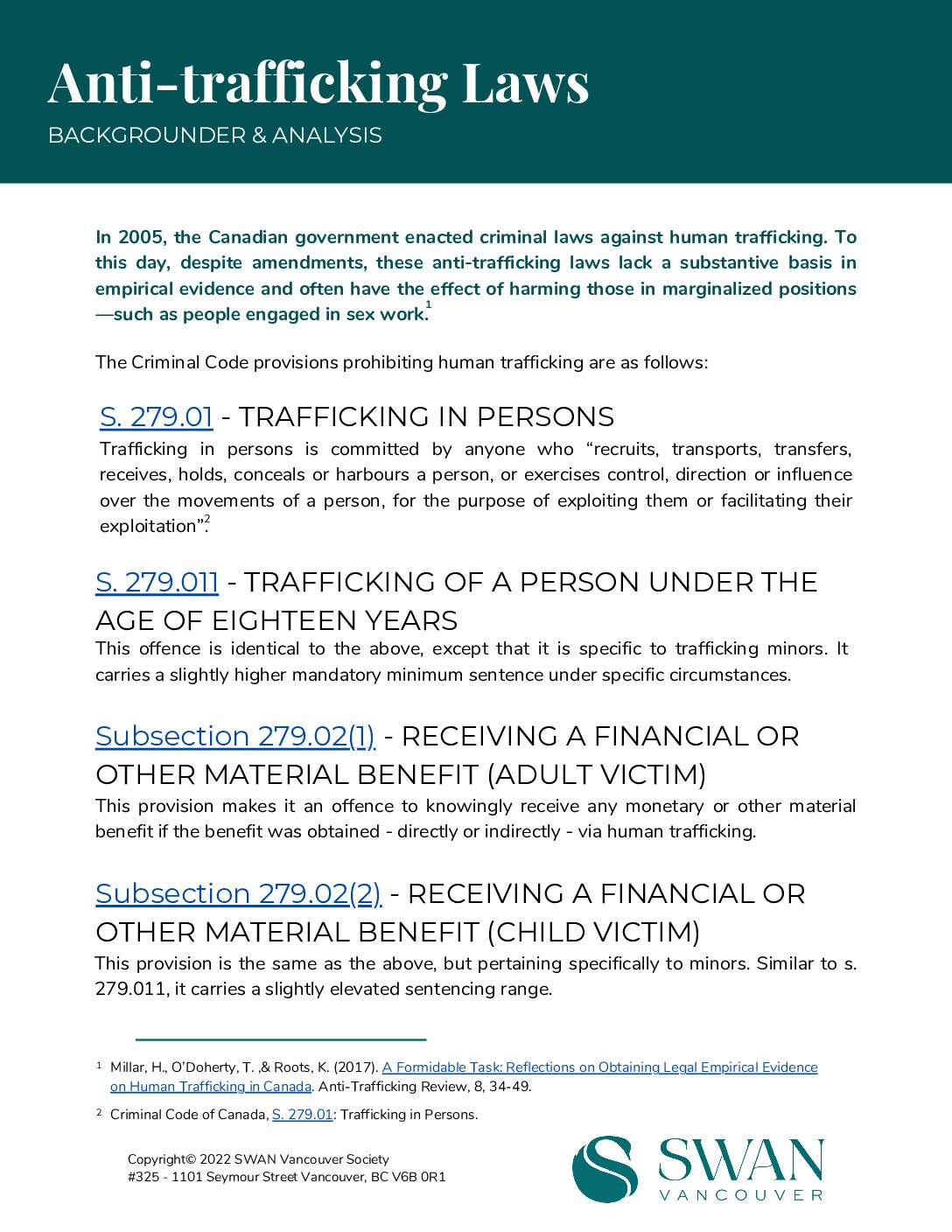In 2005, the Canadian government enacted criminal laws against human trafficking. To this day, despite amendments, these anti-trafficking laws lack a substantive basis in empirical evidence and often have the effect of harming those in marginalized positions—such as people engaged in sex work.¹
The Laws:
- Trafficking in persons
- Trafficking of a person under the age of 18
- Receiving a financial or other material benefit (adult & child victim)
- Withholding or destroying a person’s identity documents (adult & child victim)
- Kidnapping
- Forcible confinement
- Uttering threats
- Extortion
- Assault
- Sexual assault
- Aggravated sexual assault
- Prostitution-related offences (PCEPA)
- Criminal organization offences
Any of the above offences may be recorded as ‘trafficking related’ in police statistics, artificially inflating the true number of human trafficking charges and convictions in Canada.²
for the full list of resources
1 Millar, H., O’Doherty, T. ,& Roots, K. (2017). A Formidable Task: Reflections on Obtaining Legal Empirical Evidence on Human Trafficking in Canada. Anti-Trafficking Review, 8, 34-49.
2 Ibid.

